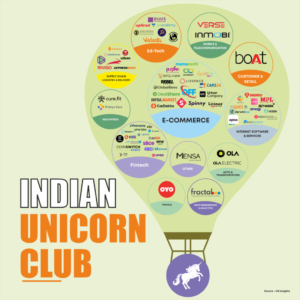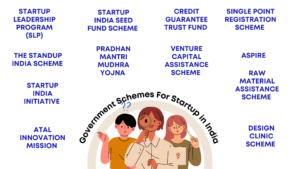Topics:
- Official Secrets Act
- India of Tomorrow Programme
- Unicorn Startup
- PESA Act
- World Breastfeeding Week
- Small Modular Reactors (SMRs)
Official Secrets Act
News:
The government informed the Rajya Sabha that during the period from 2019 to 2021, a total of 136 individuals were apprehended under the Official Secrets Act (OSA), with two of them being successfully convicted.
Introduction
- The Official Secrets Act of 1923 is India’s anti-espionage act held over from the British colonial period.
- It states clearly that actions which involve helping an enemy state against India are strongly condemned.
- It also states that one cannot approach, inspect, or even pass over a prohibited government site or area like an electrical substation.
Sections and Penalties
- The Act has 14 sections that deal with various offences relating to official secrets.
- The punishments under the Act range from three years to life imprisonment (if the intent is to declare war against India – section 5).
- A person prosecuted under this Act can be charged with the crime even if the action was unintentional and not intended to endanger the security of the state1.
Criticism and Conflict
- The Act has been criticized for being draconian, vague and outdated.
- The Act conflicts with the Right to Information Act of 2005, which promotes transparency and accountability in governance.
- The Act has been misused to harass and intimidate journalists, activists and whistleblowers who expose corruption or human rights violations.
Source: Indian Express
India of Tomorrow Programme
Introduction
- The Centre for Innovation, Incubation and Entrepreneurship (CIIE.CO), a startup incubator and investor affiliated with IIM Ahmedabad, has recently partnered with the Small Industries Development Bank of India (SIDBI) as a limited partner.
- The collaboration aims to establish a new accelerator fund focused on investing in early-stage deeptech startups.
SIDBI’s Fund of Funds for Startups (FFS) Scheme
- The Small Industries Development Bank of India (SIDBI) operates the Fund of Funds for Startups (FFS) scheme, which was launched in 2016.
- This scheme involves investing in Alternative Investment Funds (AIFs) that, in turn, provide funding to startups.
- Currently, SIDBI holds a substantial corpus of INR 10,000 Crores under the FFS scheme.
Investment Structure
Under the new partnership, SIDBI will contribute ₹20 crore, which represents half of the total corpus of the accelerator fund. The remaining amount will be provided by CIIE.CO.
Objective of the Fund
- The primary goal of the newly established accelerator fund is to invest in pre-seed stage deeptech startups within India.
- The fund aims to identify and support promising startups operating in cutting-edge technology domains.
SIDBI’s India of Tomorrow Program
- This collaboration is part of SIDBI’s India of Tomorrow program, which involves joining forces with various incubators across India.
- The program’s key focus is to promote deeptech and science-led innovation in startups.
- Through this initiative, SIDBI aims to enable seed funding to startups in exchange for equity, fostering growth and innovation in the Indian startup ecosystem.
Supporting India’s Tech-based Self-reliance Goal
- The accelerator fund’s primary objective aligns with India’s 2047 vision of becoming self-reliant in tech-based products and services.
- By providing mentorship, ideas, and access to advanced technologies, the initiative aims to bolster India’s position in the global technology landscape.
Conclusion
The partnership between CIIE.CO and SIDBI brings together resources and expertise to support the growth of early-stage deeptech startups in India.
By combining financial backing and mentorship, the new accelerator fund seeks to drive innovation and contribute to India’s journey towards technological self-reliance.
The specific types of deeptech startups being targeted by the fund may include but are not limited to:
- Artificial Intelligence (AI) and Machine Learning (ML) Startups: These startups focus on developing advanced AI and ML algorithms, applications, and solutions that can revolutionize various industries, including healthcare, finance, manufacturing, and more.
- Internet of Things (IoT) Startups: IoT startups are involved in creating innovative connected devices and solutions that enable seamless communication between physical objects and the digital world, enhancing efficiency and automation.
- Robotics and Automation Startups: These startups work on developing robots and automated systems for industrial and consumer applications, driving increased productivity and streamlining processes.
- Augmented Reality (AR) and Virtual Reality (VR) Startups: Startups in this category develop AR and VR technologies and applications that enhance user experiences, training, entertainment, and visualization in various sectors.
- Blockchain and Cryptocurrency Startups: Startups in this domain focus on leveraging blockchain technology for secure and transparent transactions and exploring novel applications in finance, supply chain, and beyond.
- Biotechnology and Life Sciences Startups: Deeptech startups in this area are involved in cutting-edge research, development, and commercialization of advancements in biotechnology, genomics, personalized medicine, and more.
- CleanTech and Sustainable Technology Startups: These startups focus on creating environmentally friendly and sustainable technologies, including renewable energy solutions, waste management systems, and eco-friendly materials.
- Advanced Materials and Nanotechnology Startups: Startups in this category develop and apply advanced materials and nanotechnology for various applications, including electronics, healthcare, and manufacturing.
- Quantum Computing and Quantum Technologies Startups: These startups work on exploring the potential of quantum computing and related technologies to solve complex problems and revolutionize computing capabilities.
- SpaceTech Startups: Startups in this domain explore innovations in space technology, satellite communication, space exploration, and commercial space ventures.
Source: Livemint
Unicorn Startup
News:
The Prime Minister emphasized the economic empowerment of women, citing that 46% of elected representatives in rural local bodies are women. He also mentioned the growing number of women in self-help groups as a force for change.
Additionally, he pointed out that 15% of India’s unicorn startups have a woman founder, collectively holding $40 billion in wealth.
Furthermore, approximately 80% of beneficiaries under ‘Stand-Up India’ are women who received bank loans for greenfield projects.
Basics
A unicorn startup is a privately held startup with a value of over $1 billion(100 Crores Rupees).
The term was first coined by Aileen Lee, founder of Cowboy Ventures. Unicorn startups are typically tech-driven, consumer-focused, privately held, and disruptors of the status quo.
The term “unicorn” refers to the rarity of startups that grow their value into the billions very quickly with help from venture capitalists and other investors.
Features of Unicorn Startups
- Disruptive innovation: Most of the unicorn startups in India have resulted in disruption in the industry they fall into with the power of constant innovation. Oyo rooms, for example, have changed the way people used to book accommodation while traveling. Paytm, particularly Paytm Wallet, changed the way people paid for things offline and online.
- Technology-driven: The business model of unicorn startups in India is driven by the latest technological innovations and trends. They leverage advanced technologies such as artificial intelligence, blockchain, big data, cloud computing, and more to offer solutions that are faster, cheaper, and better than their competitors.
- Consumer-focused: The goal of unicorn startups in India is to simplify things for consumers and be a part of their day-to-day life. They cater to the needs, preferences, and behaviors of their target customers, especially in a diverse and fragmented market like India. They also focus on customer loyalty, satisfaction, and retention.
- Affordability: Keeping things affordable is another key highlight of these startups. They offer products or services that are accessible to a large segment of the population, especially the middle class and the lower-income groups. They also use innovative pricing strategies such as freemium, subscription, or pay-per-use models.
- Privately owned: Most of the unicorn startups in India are privately owned which gets their valuation bigger when an established company invests in them. They attract significant investment from venture capitalists and other investors who see their potential for growth and profitability.
- Software-based: A recent report suggests that 87% of the unicorns’ products are software, 7% are hardware and the rest 6% are other products & services.
- Software-based products or services have the advantage of scalability, adaptability, and customization. They also have lower operational costs and higher margins than hardware-based ones.

Challenges faced by unicorn startups in India are:
- Bureaucratic inefficiencies and compliance challenges: Unicorn startups in India have to deal with complex regulations, red tape, and multiple authorities that can hamper their growth and innovation. For example, Ola and Uber have faced legal battles with state governments over licensing, pricing, and safety issues.
- Lower success rate due to failure to capture the fundamentals of business: Unicorn startups in India often focus more on scaling up and raising funds than on building a sustainable business model, customer loyalty, and profitability. This can lead to unceasing cash burn, lack of focus, bad timing, and failure to achieve product-market fit.
- Lack of business innovation: Unicorn startups in India tend to replicate existing models or solutions from the West rather than creating original and localized solutions for the Indian market. This can limit their differentiation, competitive advantage, and customer retention.
- High interest rates, inflation, the banking crisis, and the global economic slowdown: Unicorn startups in India are vulnerable to macroeconomic factors that can affect their funding, valuation, revenue, and growth prospects. For example, the Covid-19 pandemic has disrupted many sectors and caused a funding slowdown for startups in 2022.
- Failure to achieve product-market fit: Unicorn startups in India often face challenges in understanding the needs, preferences, and behaviors of their target customers, especially in a diverse and fragmented market like India. This can result in low adoption, retention, and satisfaction rates for their products or services.

Source: Economic Times
PESA Act
News:
Jharkhand’s Department of Panchayati Raj has released draft rules for public consultation to implement the Panchayats (Extension to Scheduled Areas) Act, 1996 (PESA) in the state.
Introduction
- The Panchayats Extension to Scheduled Areas (PESA) Act, 1996 is a law enacted by the Government of India for ensuring self-governance through traditional Gram Sabhas (village assemblies) for people living in the Scheduled Areas of India.
- The PESA Act was enacted in December 1996 for the extension of laws made under the 73rd constitutional amendment to the scheduled areas, to enable Tribal Self Rule in these areas.
- The PESA Act extended the provisions of Panchayats to the tribal areas.
Scheduled Areas under PESA Act
- Under the PESA Act, Scheduled Areas are those referred to in Article 244 (1), which says that the provisions of the Fifth Schedule shall apply to the Scheduled Areas and Scheduled Tribes in states other than Assam, Meghalaya, Tripura, and Mizoram.
- The states having Scheduled Areas are: Andhra Pradesh, Chhattisgarh, Gujarat, Himachal Pradesh, Jharkhand, Madhya Pradesh, Maharashtra, Odisha, Rajasthan and Telangana.
Powers and functions of Gram Sabhas under PESA Act
- The PESA Act gives special powers to the Gram Sabhas in Scheduled Areas, especially for the management of natural resources.
- The powers and functions given to the Gram Sabhas under PESA Act are:
- Right to mandatory consultation in land acquisition, resettlement and rehabilitation of displaced persons.
- Protection of traditional belief, culture of the tribal communities.
- Ownership of minor forest products.
- Resolution of local disputes.
- Prevention of land alienation.
- Management of village markets.
- Right to control production, distillation, and prohibition of liquor.
- Exercise of control over money-lending.
- Any other rights involving the Scheduled Tribes.
Issues related to PESA Act
- The state governments are supposed to enact state laws for their Scheduled Areas in consonance with this national law. This has resulted in the partially implemented PESA.
- The partial implementation has worsened self-governance in Adivasi areas, like in Jharkhand.
- Many experts have asserted that PESA did not deliver due to the lack of clarity, legal infirmity, bureaucratic apathy, absence of a political will, resistance to change in the hierarchy of power, and so on.
- As per Social audits conducted across the state, in reality different developmental schemes were being approved on paper by Gram Sabha, without actually having any meeting for discussion and decision-making.
Source: Indian Express
World Breastfeeding Week

Context:
Numerous countries have made substantial progress in promoting exclusive breastfeeding, as reported by the World Health Organization (WHO) during World Breastfeeding Week on August 1, 2023.
Exclusive breastfeeding entails feeding infants solely with breast milk, excluding all other foods and liquids, except for essential medications and supplements.
- World Breastfeeding Week is observed every year during the first week of August.
- The week-long event focuses on raising awareness about the importance of breastfeeding for infant development.
- This year’s theme is “Let’s make breastfeeding at work, work,” as declared by the United Nations Children’s Fund (UNICEF) and the World Health Organization (WHO).
- The theme highlights the need for greater breastfeeding support in all workplaces to enhance and maintain global breastfeeding rates.
- Over the past decade, there has been a remarkable 10 percentage point increase in exclusive breastfeeding worldwide, reaching 48%.
- Breastfeeding plays a crucial role in child survival and development from the earliest moments of a child’s life.
- It protects infants from common infectious diseases, boosts their immune systems, and provides essential nutrients for optimal growth and development.
Notably, babies who are exclusively breastfed are 14 times less likely to die before reaching their first birthday compared to those who are not breastfed.

Breastfeeding in India
- Factors affecting breastfeeding
-
- There are a number of factors that affect breastfeeding rates in India, including:
- Lack of awareness about the benefits of breastfeeding
- Cultural norms that discourage breastfeeding in public
- Lack of support for breastfeeding mothers, such as access to lactation consultants and affordable childcare
Additional statistics about breastfeeding in India:
- Only 43% of Indian infants are exclusively breastfed for the first six months of life. NHFS 5
- The average duration of breastfeeding in India is only 15 months.
- Only 13% of Indian mothers breastfeed their babies in public.
- Government initiatives
- The Indian government has taken a number of initiatives to promote breastfeeding, including:
- The National Breastfeeding Promotion Scheme, which provides financial assistance to mothers who breastfeed their babies
- The Janani Suraksha Yojana, which provides free childbirth care to mothers who deliver in a government hospital
- The Immunization Programme, which provides free vaccines to infants, which can help to protect them from infections
- The Indian government has taken a number of initiatives to promote breastfeeding, including:
Source: The Hindu
Small Modular Reactors

News:
The government is exploring partnerships with other countries and domestic initiatives to develop Small Modular Reactors (SMRs).
Definition
- Small modular reactors (SMRs) are a proposed class of nuclear fission reactors, smaller than conventional nuclear reactors, which can be built in one location (such as a factory), then shipped, commissioned, and operated at a separate site.
- The term SMR refers to the size, capacity and modular construction only, not to the reactor type and the nuclear process which is applied.
- SMRs are typically anticipated to have an electrical power output of less than 300 MW e (electric) or less than 1000 MW th (thermal).
- Microreactors are a subset of SMRs designed to generate electrical power typically up to 10 MW e.
Advantages of SMRs
-
- Smaller footprint, making them suitable for locations not feasible for larger reactors.
- Prefabricated units, reducing construction time and cost.
- Incremental deployment, matching energy demand growth.
- Grid flexibility, enabling integration with renewable energy sources or off-grid applications.
- Enhanced safety, relying more on passive systems and inherent safety characteristics.
- Lower initial capital investment and scalability.
Types of SMRs
- There are more than eighty SMR designs under development in 19 countries, and the first SMR units are in operation in Russia and China.
- SMR designs vary in terms of reactor type, coolant, fuel, moderator, temperature, power output and application.
Source: DTE

